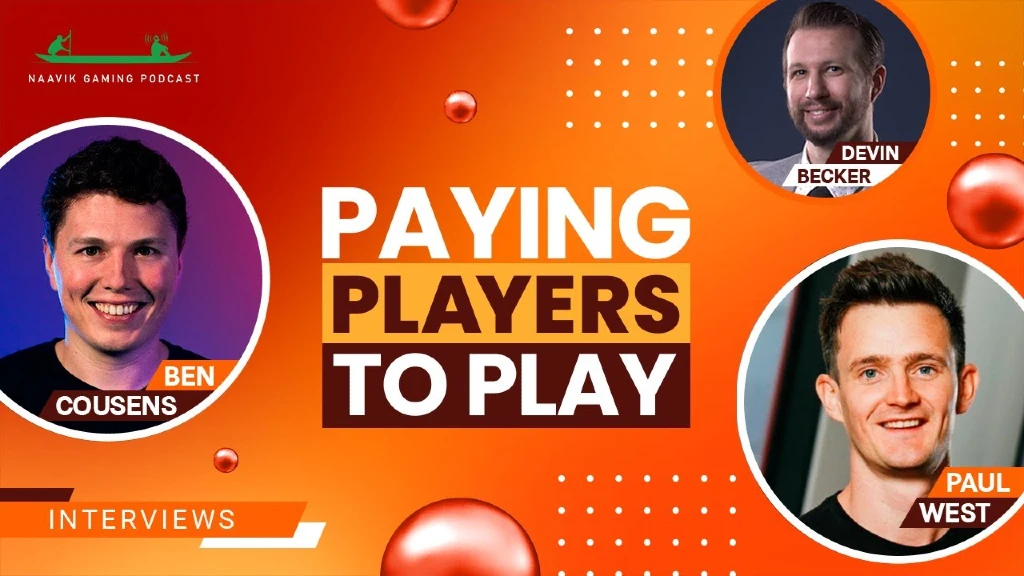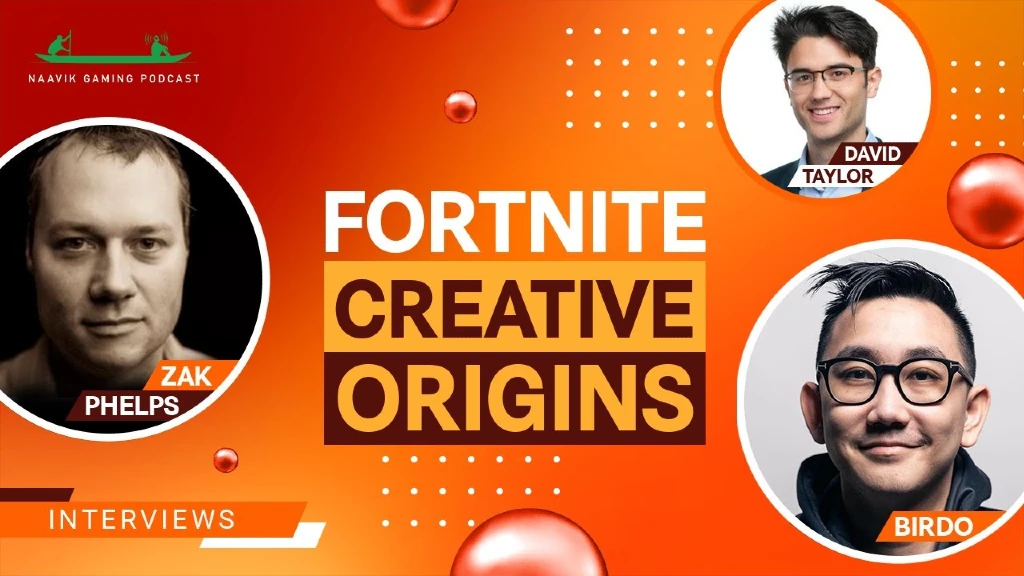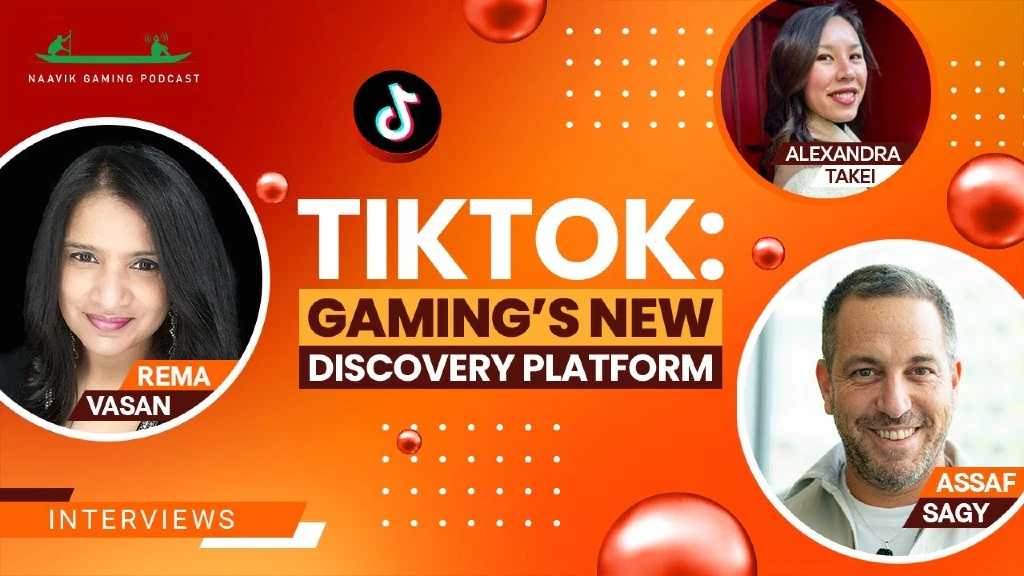In this episode, your host Alex Takei chats all things UGC, the role of IP in creating the metaverse, centralization and moderation in a creator economy, and whether any of this really needs the blockchain.
Uri’s Background: [00:02:20]
[Alex]: Can you share a little bit about yourself and what Overwolf is in your own words?
[Uri]: Starting with myself quickly. I started playing games at a very young age, probably six years old. Spent a few years in the army studying computer science and then started Overwolf. When we started the company, we actually started as creators, and we were trying to add features to the games that we were playing. Mid 2013 we pivoted to build a framework, and this brought us to where we are today: empowering both creators and developers to make games even better and we do this through providing tools and services for third-party creators.
Right now we work with around 98k creators every month across all our products, we serve 33 million active players, and another way to think about what we do is if Unity/Unreal is an engine to build games, and we’re like an engine and a service to build a creator community around your game.
Creators Becoming More Like Developers [00:05:30]
[Alex]: Can you explain why UGC is moving towards the direction of creators becoming game developers?
[Uri]: I think what’s changed is if we look at the last four decades, from probably 1983 until today, we can kind of divide these decades into eras.
- In the beginning people were mostly like hacking and reversing the games and trying to find ways to enhance them - because not that many people played games back then, so they liked to play around with software and build stuff.
- Then there was an adoption of things like map editors, for Warcraft for example, which eventually resulted in creating new all sorts of experiences. The game developer was providing players with some sort of a map editor, some sort of a creation kit - e.g. Skyrim - so third party creators could start building content off the game.
- And now we’re at a point where not only studios are investing in creation kits, they’re also investing in nurturing the community and finding a business model that makes sense, so that the whole thing would become sustainable.
Things that happened in the past decade that have accelerated the acceptance of UGC, I think first and foremost Minecraft - such a huge ecosystem in both Java and Bedrock. So many developers that have created their own private servers or mods and are now making a living building live services games on top of Minecraft. If you think about that, if you’re a young game developer right now and you want to build a new game, going to market is going to be quite challenging, and if you can build a game for an existing audience there are definitely advantages to be considered if you’re building for Minecraft.
If we look at what helped make UGC as important as it is today, then I think it's 1. a combination of four decades of people building content, 2. The deep understanding of a lot of game developers that it’s actually really good having third party creators building content for your game as long as it's safe and curated 3. And then we’ve a bunch of examples, Minecraft, Roblox, GTA V, and a lot of other examples.
Making an analogy with the web’ terms, we could say game1 is single player games, game2 is online - all of the sudden I can play with friends - and game3 is the transition from playing with my friends to actually creating content for myself and for my friends as we play together and potentially make a living.
Tools For a Strong UGC Ecosystem [00:11:40]
[Alex]: What do you think are the tools that make a strong UGC ecosystem? How would it go about building a mod in Overwolf?
[Uri]: On the app side what we provide is a framework for third-party developers to build desktop apps using HTML and javascript, and apart from that we develop more complex javascript APIs that do more complicated things like understanding real-time telemetry - what’s happening on the screen. There’s also a list of maybe over 100 items that are simple problems that we’ve solved for these third-party app developers including monetization.
On the apps front, we provide A to Z solutions all the way up to the relationship with the developer to make sure whatever you’re building is something that they like. The second category is mods, where it becomes a bit more complicated: I think that mod eventually starts with a creation kit and if the game developer would have created a great creation kit, then we’d help with publishing, with moderating, with monetization. And the third category is private servers, where the services we provide are more like Shopify.
Monetization for Successful Creators [00:30:50]
[Alex]: On average, if I’m a successful creator on Overwolf, how much could I expect to be making? Is that in parity with other metaverse games like Roblox or Minecraft?
[Uri]: It’s very much like an 80 20 ratio because a lot of people just like to create. If we’re talking about 98k users a month that interact with our creation tools, we’re then talking about 1.2k unique creators that make over 10k euros a year. We’ve - I believe the last number I checked was - 99 creators who over their lifetime made over a million dollars, which I think starts to being comparable with some of the other ecosystems around there. And, in the past 12 months we’ve helped creators generate over 160 million dollars.
Web3 Perspective [00:41:40]
[Alex]: What are you guys thinking in terms of the relationship between blockchain technology and your UGC game creator economy?
[Uri]: Actually we don’t 100% know, we’re still exploring that and trying to learn and we try to be really on top of things and curious and ask questions. Essentially web 3 in my opinion falls under tools and services, if our job is building tools and services and enabling them for game developers then this is something that we totally need to do. Honestly we haven’t started writing code, we don’t have integrations with web3 technologies - we did have a bunch of conversations and ideas, but we haven’t kind of found the things that we want to do tomorrow.
Raising Capital Successfully for Overwolf [00:51:05]
[Alex]: How have you found success in convincing investors that this is the right direction to move in? I think you guys are very successful with raising so can you maybe just share a little bit of your journey on that?
[Uri]: We were pretty horrible with fundraising when we started. We really struggled, we ran out of money probably three times, had to figure out ways to continue to survive so I think that the first key thing is if you’ve a strong conviction where you’re building just weather the storm and if you’ve the ability to continue to do that and you still believe on what you do, then do it. I think endurance is a great asset but not at every price, you need to be conscious of what you fight for and why you fight for it. The second thing is traction, when we decided to do our C round the combination of trends in the market - end of 2019 - plus the traction that we had back then helped us quite quickly close a round. I think people appreciated the mentality that we were more of a bootstrap mentality startup, which provided a lot of track record of who we are as people to future investors.








